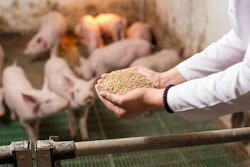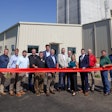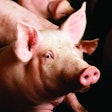
Planning can minimize disruptions to the country’s feed or food supply
Diligent planning and preparation can help the animal feed industry deal with the challenges stemming from the new coronavirus (COVID-19) pandemic and continue to provide animal feed and pet food across the country.
“The U.S. animal food industry is doing our part to curtail the spread of the novel coronavirus and minimize disruptions that could impact the feed or food supply,” said Leah Wilkinson, the American Feed Industry Association’s (AFIA) vice president of public policy and education, in an email to Feed Strategy. “Companies throughout the animal food industry are working hard to ensure the supply chain remains intact, so that farmers and ranchers can keep their livestock and poultry fed and consumers can continue to feed their pets throughout the crisis. Companies are preparing for the long haul by fulfilling orders ahead of schedule and fully stocking warehouses.”
She said many companies have “implemented policies to protect the health of their workforce, including instituting work-from-home policies for nonessential staff, limiting exposure for the essential staff running facilities, and altering shift changes to limit the overlap of staff. As an industry, we are sharing information to help us navigate this unprecedented situation and are deploying new methods of communication so that we can quickly respond to any issues as they arise.”
Helpful resources
AFIA has created resources to help its members, including examples of documents, policies, notifications and forms that can be downloaded and customized based on a company’s needs.
In order to prevent the spread of the virus in feed manufacturing facilities, AFIA recommends establishment of separation times of 10-20 minutes between shifts. This eliminates or minimizes person-to-person contact between shifts and allowing for shifts to be treated in isolation if a worker becomes ill. If employee crossover is necessary, physical distance should be maintained between workers.
Among other measures that should be taken in the manufacturing plant, AFIA suggests establishing segregation of work areas, using physical barriers between work areas and prioritizing electronic communication over in-person communication.
Truck drivers who visit facilities are advised to remain inside their vehicle, minimize contact with employees and to use off-site washrooms.
“We expect that there will be challenges on the road ahead and are encouraging our members to work closely with their local and state officials so that they understand the nature of our business and can coordinate on any plans that could impact our ability to continue sustaining the feed and food supply,” Wilkinson said.
Be prepared
In a recent blog post, Wilkinson shared additional suggestions for businesses to prepare:
- Stay updated with the Centers for Disease Control and Prevention on recommended strategies.
- Connect with your local officials.
- Know who they are now before an emergency strikes.
- Sign up for any alert notification systems they may have.
- Learn the local/county/state plans in case of an emergency or quarantines.
- Discuss with officials your business and need to deliver feed to livestock and poultry so that goals can be set on how to best accomplish that together.
- Review your human resource policies for sick time, work from home, etc.
- Look at your office space design. Can you move people so they are not within 6 feet of each other?
- Can you allow for staff to work flexible schedules in the case of school closures or modify work schedules so employees are not in close contact?
- Are you set up for people to work from home easily? Have you determined who needs to physically come into the office or manufacturing facility and who can stay home?
- Is it possible to reduce the human interactions that happen in the course of a business day? For example, can truck drivers drop paperwork off somewhere without having to come into the office?
- If illnesses begin popping up in your area, can you ramp up production or delivery schedules before quarantines may be put in place?
- Can a meeting or training be done via conference call or webinar? There are many services out there (some are even free to use!) – start testing them before you need them.
- Practice what you preach – corporate leaders need to lead by example and follow the established policies.














